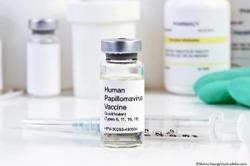© 2025 MJH Life Sciences™ , Patient Care Online – Primary Care News and Clinical Resources. All rights reserved.
Rideshare Program Could Improve Colonoscopy Completion and Reduce CRC Burden, Study Finds
A new modeling study suggests rideshare programs could double colonoscopy completion after abnormal FIT results, cutting colorectal cancer incidence and deaths while saving health care costs.
A rideshare intervention to facilitate follow-up colonoscopy after abnormal fecal immunochemical test (FIT) results was associated with reduced colorectal cancer (CRC) incidence, mortality, and health care costs, according to a microsimulation study published in JAMA Network Open.
Using the CRC-Simulated Population Model for Incidence and Natural History, investigators modeled outcomes of providing patients with a rideshare valued at $40 or $100 to increase adherence to colonoscopy following abnormal FIT. Baseline analyses assumed a 35% completion rate. Simulations included 4 cohorts of 10 million individuals aged 45, 55, 65, and 70 years who were adherent to annual FIT-based screening.
When colonoscopy completion was increased from 35% to 70% beginning at age 45, CRC incidence per 1 000 screened decreased by 26.3% (30.7 vs 41.6 cases) and mortality decreased by 32.9% (9.8 vs 14.6 deaths). This scenario resulted in 24.9 life-years gained per 1 000 screened. At $100 per ride, the intervention yielded $43 308 in direct lifetime cost per 1 000 screened and saved $330 587 per 1 000 screened.
Similar benefits were observed across age cohorts, though the magnitude of benefit decreased with advancing age due to higher baseline CRC incidence. The intervention remained cost-saving in most scenarios, with modeling suggesting rideshare costs could reach up to $498 per ride while maintaining cost-effectiveness.
Transportation barriers are a recognized obstacle to colonoscopy completion, particularly in safety-net health care settings. Prior research has shown that lack of transportation or a required chaperone contributes to delayed or missed procedures for up to 25% of patients with abnormal FIT results. The authors note that current patient navigation strategies increase follow-up colonoscopy by a mean of 13.6 percentage points but often require intensive programmatic resources.
The study authors concluded that rideshare could represent a practical, scalable, and cost-effective intervention to improve follow-up colonoscopy rates. They emphasized the need for randomized clinical trials to validate the modeled outcomes and to inform Medicare coverage considerations for transportation-based interventions.
"With limited existing interventions to address this ever-growing challenge in cancer control, our results offer a potentially practical, scalable, and widely available intervention that could ultimately improve colorectal cancer care quality," investigators concluded.
References: Issaka RB, Matrajt L, de Lima PN, Rutter CM. Modeled Cost-Effectiveness of a Rideshare Program to Facilitate Colonoscopy Completion. JAMA Netw Open. Published online September 2, 2025. doi:10.1001/jamanetworkopen.2025.30515
Related Content:



